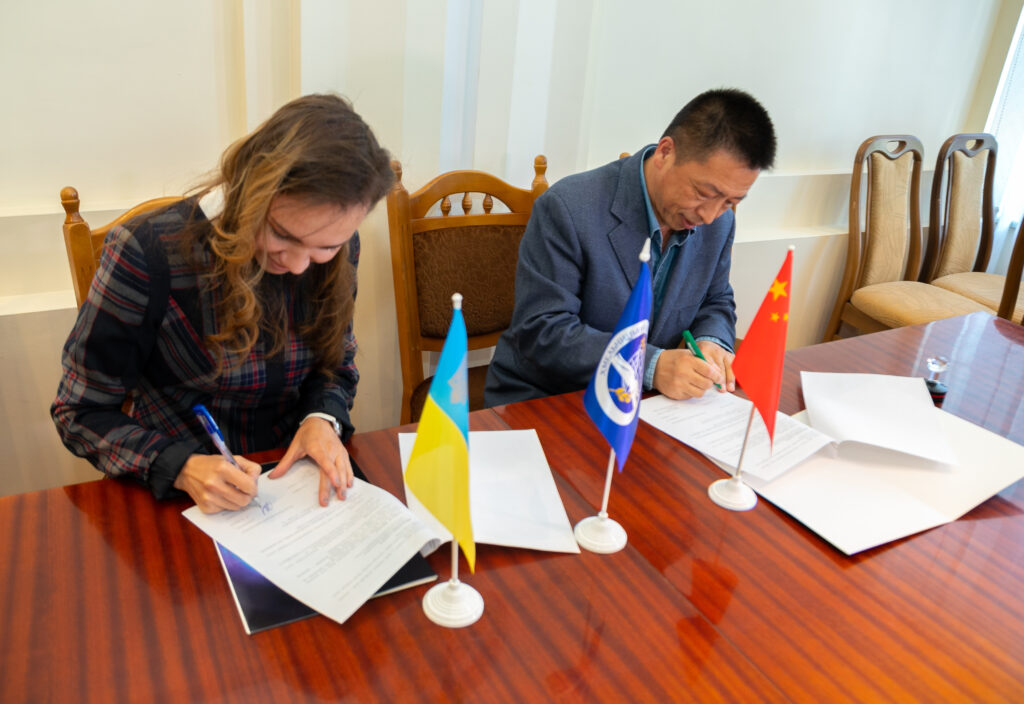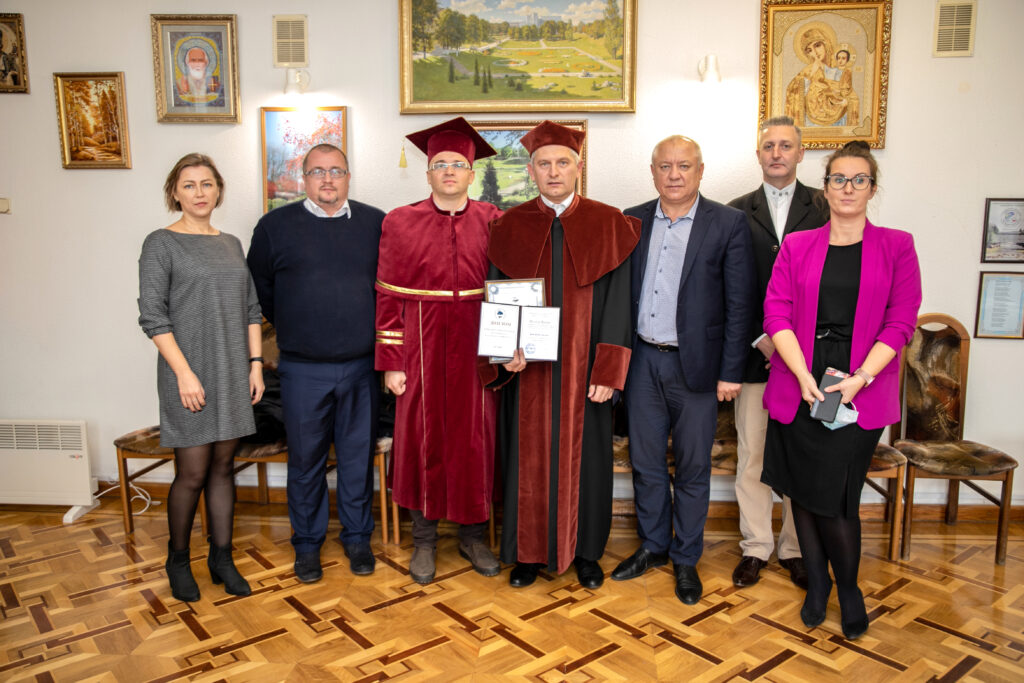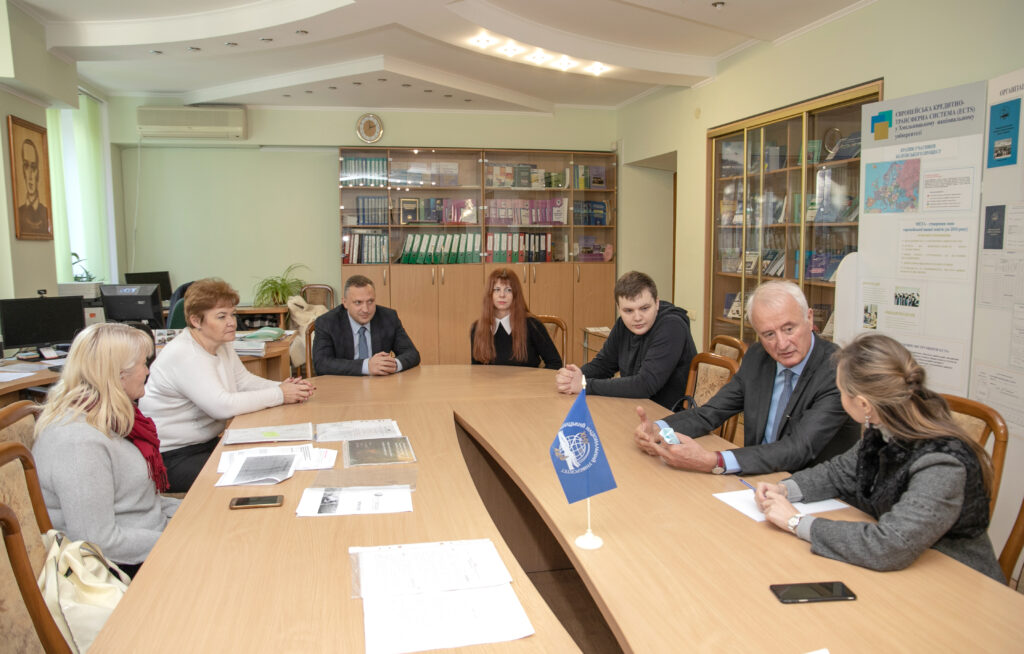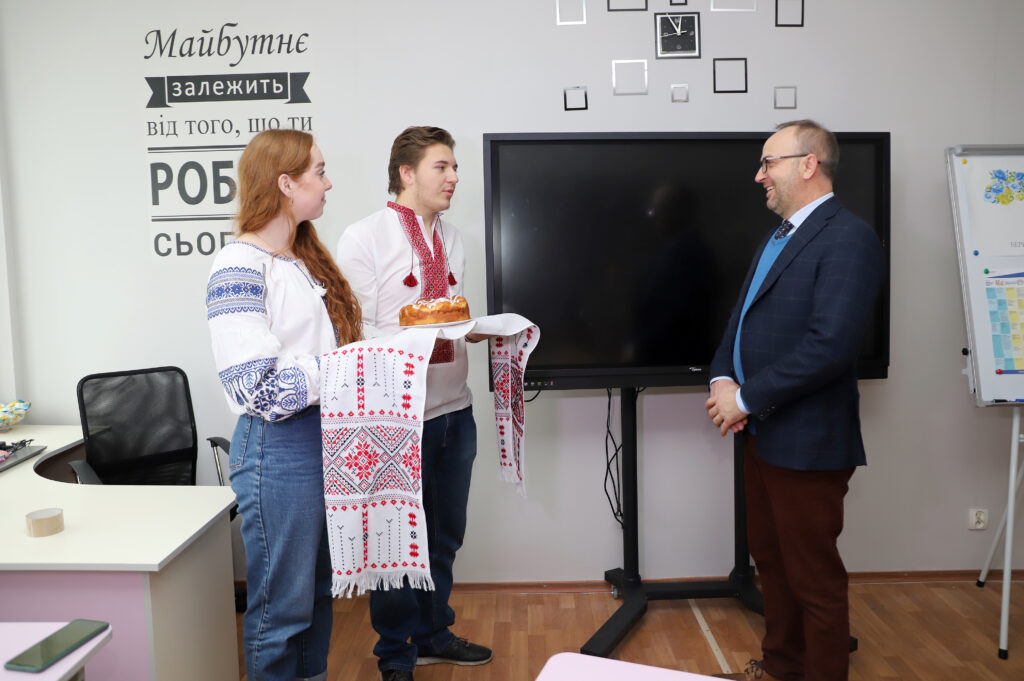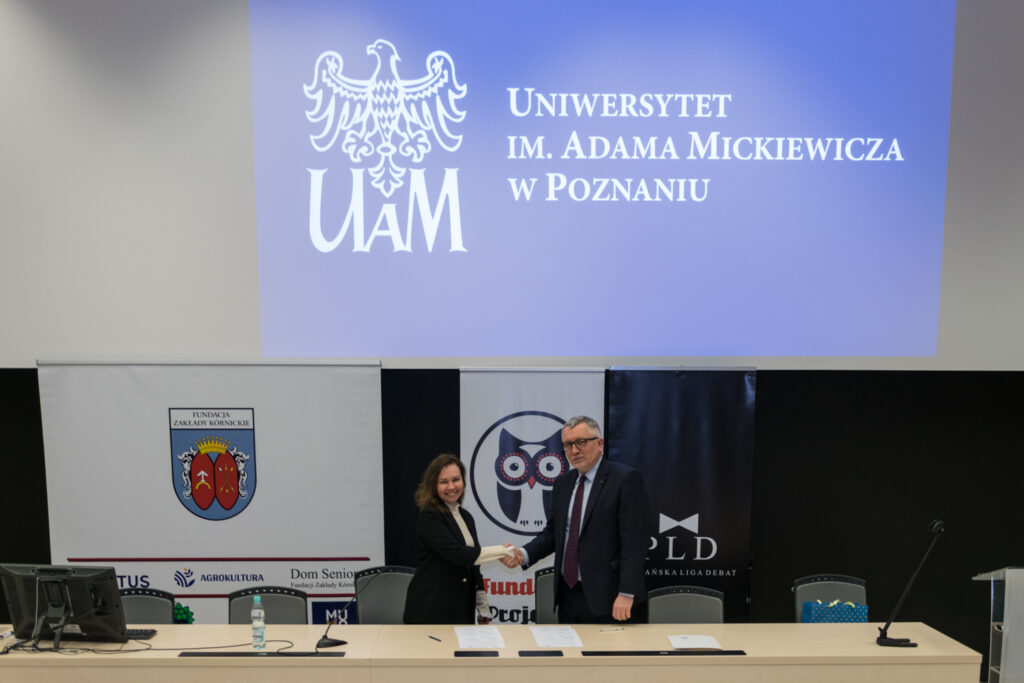The university cooperates with higher education institutions and entities of other countries based on the principles of prioritizing national interests, developing the educational and scientific potential of the university, establishing systematic and mutually beneficial cooperation, aiming to attract additional sources of funding through grant systems, and entering into agreements with foreign legal entities and physical persons regarding student education, training of scientific personnel, and conducting research and designing projects.
Contacts with higher education institutions in other countries provide opportunities to enhance the qualifications of scientific and pedagogical staff, enrich the educational and scientific potential through the adoption and utilization of global experience, organize summer schools, exchange professors and students within the credit transfer system, and facilitate internships for faculty members, and more.
International activities in education and science remain an essential component of our university's activities. In the era of globalization, the full-fledged functioning of higher education institutions is only possible through their internationalization. We must consider contemporary global influences as we shape our national education system. Some of the critical modernization changes in higher education, driven by globalization processes, are internationalization and integration.
The university implements cooperation within various agreements: agreements on international cooperation, memoranda with foreign higher education institutions, and contracts with foreign university partners for the university's participation in Erasmus+ academic mobility programs. Khmelnytskyi National University has well-established long-term international cooperation with 150 partners abroad.
In the framework of these agreements, international scientific and practical conferences among students, researchers, and academic staff are held. Planned joint research projects are conducted; scientific collections, manuals, and methodological recommendations are published, and internships for students and staff are carried out. A significant direction of international cooperation for the university is the implementation of international projects, among which the most notable ones are: Erasmus+ projects KA2 MOVEx – Development of the Model and Open database of Virtual national and international academic Exchange programs to facilitate the university students' academic mobility and international cooperation (15.12.2022 – 15.12.2025), Students personalized learning, based on the virtual learning environment of Intellectual Tutoring "Learning with No Limits" (01.01.2022 – 31.12.2025), "UKROTHE: Developing an Occupational Therapy study program in Ukraine"; USAID et al. project, CRDF Global in Ukraine (Representative Office of the U.S. Civilian Research and Development Foundation), international project supported by NAWA "Green Transition in Ukrainian Universities" (01.01.2023 – 31.12.2023); a project with official partner Autodesk - AMC Bridge company, as well as Erasmus+ KA1 projects. Khmelnytskyi National University has joined the international project "Twinning Initiative" and has a British twin - Bangor University.
Within the implementation of international projects, the following facilities and centres continue to operate at the university: the Competence Center for Educational Management and International Educational Programs; the Educational and Technical Center at the Department of Mechanical Engineering Technology, Faculty of Engineering Mechanics; the Prototyping Laboratory equipped with modern 3D printers and 3D scanners; the HAAS Educational and Technical Center for designing technological processes for computer numerical control (CNC) metalworking equipment; the Sewing Equipment Educational and Scientific Center under the brand "BRUCE," equipped with modern industrial sewing machines with automated electric drives and control systems.
Additionally, the university houses a state-of-the-art Educational and Scientific Center for Automation Systems and Electric Drives in collaboration with SIEMENS. SIEMENS has provided equipment and software within this centre, allowing students to acquire in-depth knowledge of automated control systems for various industries.
A rooftop solar power station with a capacity of 500 kW has been installed, and a dispatch centre for this power station has been established. An automated energy accounting system and a monitoring system based on Smart Logger have been put into operation, enabling real-time monitoring of the solar power station's operation. Installing the solar power station enables the university to generate electricity and save costs.
One form of international integration for the university is membership in leading academic organizations, an essential indicator of internationalization and international recognition. Khmelnytskyi National University is a member of prestigious academic associations and communities worldwide, such as the "Help for Poles in the East" Foundation (Warsaw, Poland), the "Freedom and Democracy" Foundation (Warsaw, Poland), the "Integration Europe-East" Society (Kielce, Poland), USAID "Cybersecurity of Critical Infrastructure in Ukraine," the Israeli Independent Academy for Development of Sciences (INARN), the Teachers of English to Speakers of Other Languages Association (TESOL-Ukraine), and the International Federation for the Promotion of Mechanism and Machine Science (IFToMM). The university has also acquired membership in the Businet Association. Businet is a network of international higher education institutions that share standard views on internationalization. Businet creates an environment that encourages the exchange of best practices and collaboration among like-minded organizations. As a result of the membership, university students participated in an online course on global skills development. The course, developed by a group of universities within the Businet association, contributes to developing global competence and social skills essential for a competitive professional. Moreover, KhNU has joined the Baltic University Programme. The program comprises over 90 universities in the Baltic Sea region and is coordinated by Uppsala University (Sweden).
Khmelnytskyi National University collaborates with international organizations and participates in international events, ensuring European and global quality standards and significantly expanding the horizons of its activities.
